The danger of simple ideas
There’s always more to things than meets the eye. But looking at the news, it seems people only want to hear one side of the story. Subtlety is out; simplicity is in.
Most recently, and most appallingly, we’ve seen the vultures swoop down on the Pulse shooting in Orlando to make some cheap political capital for their causes of choice.
What has happened in Orlando is just the beginning. Our leadership is weak and ineffective. I called it and asked for the ban. Must be tough
— Donald J. Trump (@realDonaldTrump) June 12, 2016
For Islamophobes, the only thing that matters is the background of the shooter, not the identity of the people he killed. (The inconvenient truth of his US citizenship is downplayed.)
Gun advocates shed crocodile tears for the victims while pretending the easy availability of weapons had nothing to do with the tragedy.
Meanwhile, the media cater to all this by covering events in a resolutely unintersectional manner, determined to make every person one-dimensional, every event ‘about’ a single theme.
Basically, too many people are grabbing this terrible event and bending it to their own agendas by making it about one simple thing.
This is simplicity as a tool of oppression, a blunt instrument to shut down debate. It isn’t about helping people understand, but about preventing them from doing so. Simplicity that doesn’t help.
Should I stay or should I go?
Here in the UK, a similar thing is happening with the EU Referendum.
The basic decision can be framed simply: in or out. But the issues behind it are incredibly complex, demanding at least some appreciation of history, international politics and economics, and the ability to weigh several different factors against each other.
For most voters, myself included, a truly informed decision is out of reach. But just because we can’t know everything, that doesn’t mean we should know nothing. We keep hearing how important the decision is, but debate has been polluted by covert agendas, cynical button-pushing and dog-whistle messaging, sustained by a running battle of claim and counter-claim. Time and again throughout the deeply unedifying campaign, we’ve seen both sides bring the issue down to a lowest common denominator – usually money or immigration.
Taking over-simplification to new heights (or new depths), Leave.EU (not the official Vote Leave) shamefully conflated UK EU membership and the Pulse shooting, making both about Islamic extremism and immigration. It seems that if you’re a hammer, the whole world is a nail. 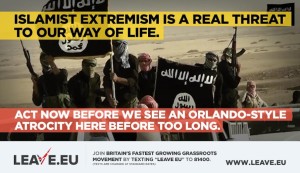 The truth is that EU membership is an issue that resists simplification. By trying to make it simple, we merely help those who stand to benefit from the issues we highlight, while marginalising whatever we leave out of the picture. What we need is subtlety, not simplicity.
The truth is that EU membership is an issue that resists simplification. By trying to make it simple, we merely help those who stand to benefit from the issues we highlight, while marginalising whatever we leave out of the picture. What we need is subtlety, not simplicity.
Beyond good and evil
As with events and issues, so with individual people. Muhammad Ali was a hero, both in sport and in life. He inspired millions. He changed perceptions of what sportspeople, people of colour and people full stop could achieve. 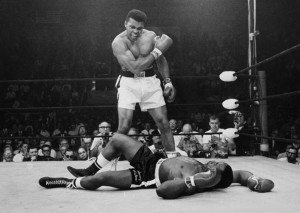 An iconic photo of Ali shows him towering over his floored rival, Joe Frazier, revelling in victory. Viewing such images, we identify Ali as ‘good’, and his opponent, implicitly, as ‘bad’. When Ali wins, good wins. And although Ali faced ferocious criticism in his time, that’s the sanctified image of him that ultimately prevailed, as personified by that immortal Esquire cover.
An iconic photo of Ali shows him towering over his floored rival, Joe Frazier, revelling in victory. Viewing such images, we identify Ali as ‘good’, and his opponent, implicitly, as ‘bad’. When Ali wins, good wins. And although Ali faced ferocious criticism in his time, that’s the sanctified image of him that ultimately prevailed, as personified by that immortal Esquire cover. 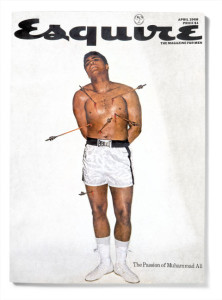 Because Ali was so much in control of his image, his name and his words, he’s a hero to marketers too, as Dave Trott argues here. In a sense, Ali’s life was a masterclass in what Trott calls predatory thinking. Through careful choice of positioning and message, Ali came from an outsider position to build an all-conquering brand. He even had a simple, memorable tagline: ‘The Greatest’.
Because Ali was so much in control of his image, his name and his words, he’s a hero to marketers too, as Dave Trott argues here. In a sense, Ali’s life was a masterclass in what Trott calls predatory thinking. Through careful choice of positioning and message, Ali came from an outsider position to build an all-conquering brand. He even had a simple, memorable tagline: ‘The Greatest’.
But Ali had a darker side too. His years of taunting Frazier for being inarticulate, a ‘gorilla’ and an Uncle Tom went way beyond sporting banter, arguably as far as straight-out racism. And Ali threw those insults even though Frazier had gone out of his way to defend him when he lost his boxing licence, and even supported him financially in his wilderness years. When Ali died, he was worth $80m, while Frazier wound up almost as poor as he began.
Of course, Frazier wasn’t completely ‘good’ either. He refused to forgive Ali, even gloating over his later suffering with Parkinson’s.
The truth is that both men were human, with different sides to their characters. If we reduce either of them to a single idea, we’re denying that humanity. Indeed, it’s only by remembering that Ali was a person, rather than a saint, that we can appreciate how impressive his achievements really were.
Keep it simple
No doubt, the news media plays a big part in this. But I wonder whether marketers and copywriters share the blame too.
By trying to ride the news wave, we’ve muddied the distinction between real events and marketing. By engineering our messages for social clicks, we’ve conditioned our audience to expect something accessible and immediate. And we often explicitly fetishise simplicity in our copy, as if anything simple must be good. Well, often it is – but not always. 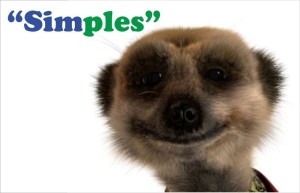 Speaking at the PCN Conference, Dave Trott said, ‘All the strength is in simplicity, and all the weakness is in complexity’. Again, there are lots of times when that’s true. But there are also times when it isn’t.
Speaking at the PCN Conference, Dave Trott said, ‘All the strength is in simplicity, and all the weakness is in complexity’. Again, there are lots of times when that’s true. But there are also times when it isn’t.
Rather than striving for simplicity, we might settle for it, because we’re unwilling to look deeper. Perhaps we’re afraid of not having all the answers, or looking stupid. Or we might not be ready to credit other people with the intelligence to deal with tough problems. In other words, simplicity can be weak – and subtlety can be a strength.
Of course, simple ideas can be positive too – hate will conquer love; we can heal disunity by standing together. That’s great as far as it goes, but there’s a risk of lapsing into complacency or even self-congratulation. We’ve made a positive, strong-sounding response, but we haven’t actually fixed anything. The devil is in the detail, and we’ve left him there, undisturbed.
A plea for nuance
In a world where everything is oversimplified, subtlety and complexity become radical, even subversive. Maybe the next frontier of branding will be messages that take time to sink in, that embody contradiction or need reading twice. Messages that don’t necessarily fit in a tweet.
Returning to the EU Referendum, let’s consider the Remain campaign. On the one hand, it’s been a sobering reminder that you can lose a factual argument even when the facts are ostensibly on your side. As Goebbels (and Bunk in The Wire) noted, ‘The bigger the lie, the more they believe’.

If you don’t like what they’re saying, change the conversation. But the more creative, adventurous side of Remain has been remorselessly negative and fear-based, with scattergun scare-stats and the vaguely defensive slogan ‘Stronger In’. Pummelled by the messages of Project Fear, it felt we were being given plenty of reasons not to leave, but precious few reasons to stay.
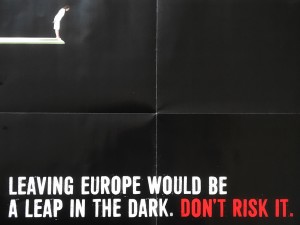
The problem with the ‘out of the frying pan’ argument is that people believe, rightly or wrongly, that they’re already in the fire. If you honestly feel that Britain’s going to the dogs and the status quo is untenable, as many Brexiters clearly do, you’re going to vote for change. When you have nothing to lose, you have everything to win. Why not roll the dice?
What’s more, Project Fear casts Remain in the role of the know-it-all, over-controlling parent, actively inviting an impish, anti-establishment ‘fuck you’ response. Instead of scrambling to impose its authority, Remain could have differentiated itself – elevated itself, in fact – by giving people ‘psychological air’ to step back and consider this most delicate, most nuanced issue. It works with kids and colleagues, so why not voters?
Subtle strategies demand subtle creative work. So how about a lovely, intricately crafted long-copy advert on things we all love about Europe? How about a drip-fed series of reasons (positive reasons, not warnings) why we should actively want to be part of the EU? How about a properly creative campaign on the theme of collaboration or unity? Or, in the fashion of our times, how about briefly retelling the story of Europe, to show why international harmony matters so much? Or the stories of some people and firms, UK and otherwise, who’ve prospered through the EU?
Weak ideas, maybe. But who can say for sure that something more subtle and imaginative wouldn’t have achieved something better than 50/50 polling numbers a week before the vote?
When issues are complicated, progressive ideas may just lose out to simple reactionary messages, even if they’re false. As the first world lurches rightwards, the signs are not good. Maybe we all need to rediscover the value of subtlety before it’s too late.
Comments (2)
Comments are closed.
Perhaps the problem with forming a subtle opinion on something is that it takes so much effort.
One of my favorite books of all time is “Notes on the Synthesis of Form” by Christopher Alexander. Even though it is all about architecture, his design methodology can be applied to any kind of problem-solving. And what he demonstrates is just how much discipline and effort are required to deal with complexity.
One of the examples in his book is about designing a village in India. He begins by doing extensive research, and documenting everything he learns. On religion, caste, social forces, employment, water, literally every aspect of life in that village. For instance:
Social forces
1. Marriage is to person from another village.
2. Extended family is in one house.
3. Family solidarity and neighborliness even after separation.
Etcetera. He lists hundreds of considerations.
Next, he starts to group those considerations:
1 interacts with 8, 9, 12, 13, 14 …
2 interacts with 3, 4, 6, 26, ..
….
Then he turns those groups into design patterns, which carefully balance out conflicting forces within the group. And then he brings those patterns together, balancing out conflicts between them.
And so it goes on, and as the village takes shape, it starts to look very interesting and beautiful, because Alexander lets the hundreds of small “facts of the world” build the village, rather than his own opinions and ideas.
I think it takes similar effort, selflessness and discipline to attain any useful ideas about the big questions of our time, such as immigration and political alliances. “Brexit – YES/NO” just doesn’t cut it. And people who are willing to make a real effort are scarce, and as you say, perhaps nobody is listening to them anyway.
Many thanks for the comment Jorn.
The problem is that if your opponents are oversimplifying, or acting cynically, you end up doing the same thing in response. So the Remain campaign has resorted to scare tactics, or, at best, encouraging voter turnout in the knowledge that younger people tend not to vote but will probably back Remain if they do.
So the best option on the table is to encourage a ‘good’ action for reasons that are, at base, actually quite manipulative. Because, as you say, no one really has the time or stamina to examine the issue with the thoroughness it deserves.